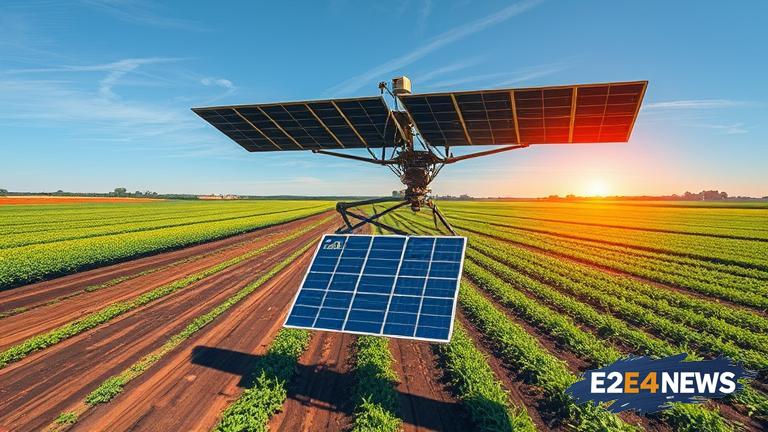The agricultural sector is undergoing a significant transformation with the integration of satellite technology and data analytics. Climate-smart farming, an innovative approach, is enabling farmers to respond to uncertainty and make informed decisions. By utilizing satellite data, farmers can monitor soil moisture, crop health, and weather patterns, allowing them to optimize irrigation, fertilization, and pest management. This approach not only enhances crop yields but also reduces the environmental impact of farming practices. Satellites in orbit around the Earth provide high-resolution images of agricultural land, which are then analyzed using advanced algorithms to extract valuable insights. These insights help farmers identify areas of improvement, such as soil degradation, water scarcity, and crop stress. Furthermore, data analytics plays a crucial role in climate-smart farming, as it enables farmers to analyze historical climate trends, weather forecasts, and soil conditions to make informed decisions. By adopting this approach, farmers can reduce their reliance on traditional farming methods, which often rely on guesswork and intuition. Climate-smart farming is particularly beneficial for smallholder farmers, who often lack access to resources and expertise. Satellite technology and data analytics can help these farmers optimize their farming practices, improve crop yields, and increase their income. In addition, climate-smart farming can help mitigate the impacts of climate change, such as droughts, floods, and heatwaves, which can have devastating effects on agricultural productivity. The use of satellite technology and data analytics in farming is not limited to crop management; it can also be used to monitor livestock health, track soil erosion, and detect early signs of disease outbreaks. Moreover, climate-smart farming can help reduce the environmental impact of farming practices, such as water pollution, soil degradation, and greenhouse gas emissions. The Indian government has launched several initiatives to promote climate-smart farming, including the National Mission on Sustainable Agriculture, which aims to promote sustainable agricultural practices and improve the resilience of farming systems to climate change. Other countries, such as the United States, Brazil, and Australia, are also adopting climate-smart farming practices, recognizing the potential benefits for farmers, the environment, and the economy. The private sector is also playing a significant role in promoting climate-smart farming, with companies such as John Deere, Monsanto, and IBM developing innovative solutions for farmers. These solutions include precision farming equipment, data analytics platforms, and decision-support tools, which can help farmers optimize their farming practices and improve their productivity. However, there are also challenges associated with the adoption of climate-smart farming, such as the high cost of satellite technology and data analytics, limited access to internet and mobile connectivity, and the need for specialized skills and training. Despite these challenges, the benefits of climate-smart farming are undeniable, and it is likely to play a critical role in ensuring global food security, reducing poverty, and promoting sustainable development. In conclusion, climate-smart farming is a game-changer for the agricultural sector, offering a range of benefits for farmers, the environment, and the economy. As the world grapples with the challenges of climate change, food insecurity, and sustainable development, climate-smart farming is poised to play a critical role in shaping the future of agriculture.
